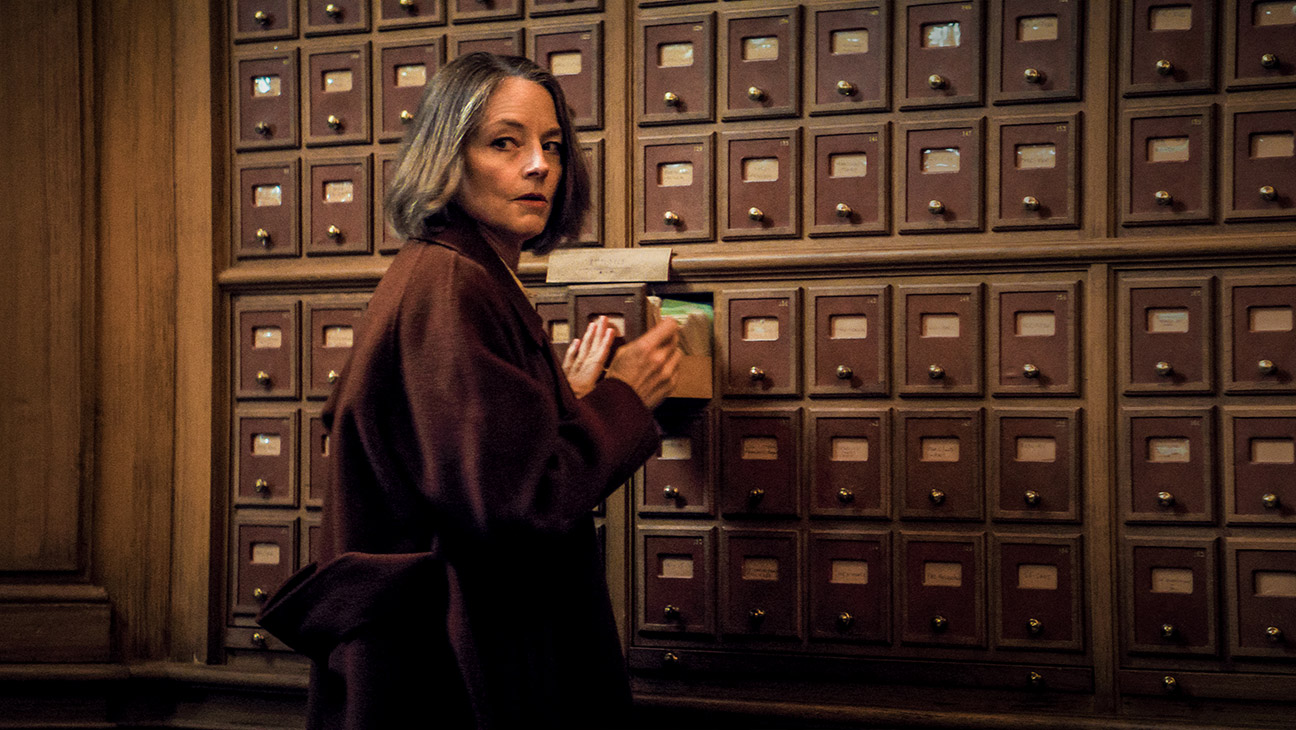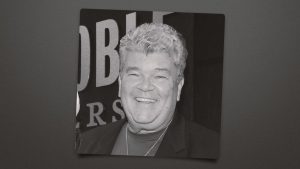
Caught between sophisticated comedy and silly fluff, between Hitchcockian mystery and zany amateur sleuth caper, A Private Life (Vie Privée) is a lot more fun than it probably deserves to be thanks to the disarming chemistry of its seasoned leads, Jodie Foster and Daniel Auteuil. Rebecca Zlotowski’s latest doesn’t have the intoxicating sun-kissed sensuality of An Easy Girl or the emotional complexity of Other People’s Children, her last two films. This one is too busy careening all over the tonal map for any of that. What it does have is the French director’s customary light touch; it’s chaos with charm.
Foster’s French — at least to these ears — sounds impeccable and this is her first feature in the language since 2004’s A Very Long Engagement. She jumps into it with a spiky vitality and an unexpected playfulness that buoy the movie as much as Zlotowski’s zippy direction.
A Private Life
The Bottom Line
A wobbly soufflé but flavorful.
Venue: Cannes Film Festival (Out of Competition)
Cast: Jodie Foster, Daniel Auteuil, Virginia Efira, Mathieu Amalric, Vincent| Lacoste, Luàna Bajrami, Noam Morgensztern, Sophie Guillemin, Frederick Wiseman, Aurore Clément, Irène Jacob, Ji-Min Park
Director: Rebecca Zlotowski
Screenwriters: Anne Berest, Rebecca Zlotowski, in collaboration with Gaëlle Macé
Rated R,
1 hour 43 minutes
Her character, Dr. Lilian Steiner, is an American psychoanalyst working out of her home office in Paris. At first glance, she seems like classic Foster material — fiercely intelligent, controlled, professional, a touch guarded. But as Lilian starts unraveling, she becomes impulsive, irrational, emotional, insecure about her work and at times almost ditzy.
Coming off her brilliant turn as the haunted, tightly wound police chief in True Detective: Night Country, it’s a pleasure to watch Foster loosen up and have fun with a role, getting to exercise comedy chops too seldom tapped in her American projects of recent decades.
Just the novelty of watching her act in another language, as a woman in her adopted country long enough to absorb many of the mannerisms yet still markedly different from the locals, is a kick. And when Lilian gets flustered or annoyed and mutters an occasional “motherfucker” or some other expletive in English, it humanizes her, acknowledging that she doesn’t have all the answers.
The script, co-written by Anne Berest and Zlotowski, right off the bat throws curveballs at Lilian to inject nagging doubts into her work. She learns that the reason her patient of many years, Paula (Virginie Efira), has missed her last three sessions without canceling is that she committed suicide.
She’s still digesting that news, asking herself why she saw no red flags, when an angry patient (Noam Morgensztern) bursts in. He aggressively informs Lilian that his many sessions with her to quit smoking were a waste of time and money, but he kicked the habit with just one visit to a hypnotist, freeing him from cigarettes and from her.
Lilian makes the mistake of going to Paula’s home while family and friends are sitting shiva. She’s ordered to leave by grieving widower Simon (Mathieu Amalric), who flies into a rage, shouting that after all the years Lilian had been treating his wife, she should have known something was wrong. Later, he accuses her of over-prescribing antidepressants, leading to the overdose that killed her.
Meanwhile, Lilian, who has never been able to cry, starts shedding tears uncontrollably, often without knowing it’s happening. She consults her ex-husband Gabriel (Auteuil), an eye doctor whose droll response to seeing her weep for the first time is, “It suits you.” Lilian seems on better terms with Gaby, as she calls him, than with their adult son Julien (Vincent Lacoste), with whom she’s never been close. That emotional block now extends to her infant grandson.
Zlotowski inserts a funny montage of patients banging on about their mostly banal issues while Lilian, mortified to appear so unprofessional, dabs at her face with tissues to mop up the almost nonstop waterworks.
In a Freudian detour that’s arguably the movie’s least successfully integrated scene, Lilian tries fixing the tear duct problem by seeing a hypnotist (Sophie Guillemin), who tells her she’s in mourning and coaxes the skeptical shrink to return to her mother’s womb. Suddenly, the hypnotist is guiding Lilian through a vast red space in another dimension with various doors and stairways.
Under hypnosis, Lilian enters a hall where she and Paula are cellists in an orchestra recital in early 1940s occupied France; Julian is one of the uniformed Nazis in the audience and Simon conducts with a baton that becomes a gun. It’s like a stoner’s take on Truffaut’s The Last Metro — enjoyably arch but too loopy to have much relevance beyond the hypnotist’s assertion that Lilian and Paula were lovers in a past life. All very Shirley MacLaine.
It does, however, stop the weeping, address Lilian’s disgust with antisemitism and plant a subliminal hint as to why she was never able to bond with Julian. Not that any of that is clearly articulated.
The movie is on more accessible ground back in the real world, where a visit from Paula’s pregnant daughter Valérie (Luàna Bajrami) leads Lilian to believe her patient was murdered, either by her daughter or husband. She enlists the help of the amiable Gaby to start tailing them, at the same time listening to her recordings of sessions with Paula for clues.
The mostly preposterous mystery thread never acquires much substance despite tossing a lot of balls in the air. Someone breaks into Lilian’s apartment and steals the audio file from Paula’s final session; suspicions arise concerning an inheritance from a wealthy aunt (screen veteran Aurore Clément, perhaps a nod to Louis Malle’s Lacombe, Lucien?); Simon picked up Paula’s medication from the pharmacy and possibly tampered with it; and he appears to be leading a double life with another woman and a child tucked away in Chérence, outside Paris.
These questions are resolved, more or less, in an anticlimactic wrap-up that yields the relatively meager payoff of Lilian learning to be a better listener and a more accepting mother. But the flimsy plot becomes secondary to the fizz generated every time Foster and Auteuil share a scene — Lilian wired and Gaby supremely chill. They toss badinage back and forth with an ease that rescues the movie, and they exchange looks that point to mutual affection and desire undimmed by divorce.
If the messy strands of this genre-blurring film struggle to cohere, the parts that veer toward a remarriage comedy make it enjoyable. A Private Life rolls along at a jaunty pace, frequently prodded by percussive staccato bursts of mononymous composer Rob’s whimsical score. The glossy, good-looking production feels like a throwback to French fare from a few decades ago — middlebrow passing for intellectual, mainstream commercial passing for arthouse. But there’s a nostalgic appeal to it, boosted by an unlikely middle-aged rom-com dream team in Foster and Auteuil.
#Jodie #Foster #French #Comedy






